- Home
- David Brin
The Transparent Society Page 10
The Transparent Society Read online
Page 10
“Our private health information [is] being shared, collected, analyzed and stored with fewer federal standards than video store records,” said Donna E. Shalala, secretary of health and human services in the Clinton administration. Many lawmakers of both parties are demanding better protections, but few have concentrated on the details, which are bound to be wrangled over by lobbyists for powerful interests, from the insurance industry to the ACLU and the American Medical Association (AMA). At first, we may see an incremental approach, mandating adherence to some basic privacy protocols, such as the Open Profiling Standard (OPS) that has begun to take hold in a few areas of the Internet. Such efforts might at least assure consumers access to their own records and impose sanctions against flagrant distribution of personal data without a treatment-related need. Two long-range possibilities being discussed include a centralized medical database accessible to health care workers, or a “smart card” carried by the patient containing up-to-date medical records. Both have provocative implications for the future.
Safeway Is Watching You
Nowadays in the United States, most supermarket chains will issue a “club” card to anyone who asks for it. Shoppers wave the card before the cashier’s UPC reader in order to qualify for special bonuses, customized coupons, and discounts off the retail price. Polls show that a substantial fraction of customers understand the implication: that the store may now correlate their purchases in a growing database in order to perceive buying patterns and better anticipate their clients’ needs. In effect, the company uses point-of-sale discounts to “buy” information that may enable it to provide better service and compete more effectively. Some privacy advocates find it chilling to picture a big corporation knowing the detailed contents of every shopping cart. Yet the cards prove increasingly popular, indicating that most people simply don’t care. Their blithe attitude may be based on two factors.
First, even if strangers know which brand of dog food I purchase, it is hard to imagine how they could possibly use the data to harm me. (This may be less true of items like pregnancy test kits, hemorrhoid creams, and so on.)
Second, it is comforting to know that we can always stop using the club card, or even put aside checks and credit cards. In other words, if it ever seems important to do so, we can fall back on cash, which is safely anonymous.
Or can we? Already there are legal and practical limits to how much cash merchants will accept without becoming darkly suspicious. And now, a proposal looms on the horizon that may have radical implications about the beloved anonymity of greenback currency. Faced with sophisticated counterfeiting efforts that are allegedly subsidized bv hostile nations, and acknowledging that the total flow of cash through worldwide criminal activity now exceeds the budgets of all but a dozen nations, planners are suggesting that the next generation of currency be equipped with “super barcodes” for instant scanning and identification at any bank, and later at any commercial point of sale.
While greenbacks have carried individual serial numbers for a long time, it seems quite another matter for each one to be scanned and tracked many times in a given day, with the information tallied and correlated in one vast, omniscient database! The notion of tracing the path of every crumpled dollar bill in a staggeringly huge economy might seem impossibly daunting at first. And yet, most of the monetary value exchanged in modern transactions is already electronic, leaving detailed trails for modern sleuths to follow.
In effect, each of the new bills would have an individual identity, or a name, to be logged during every purchase or exchange. The implications of such a change are diverse and multifarious. For instance, it has long been pointed out that most street crime depends on the anonymity of cash. If victims could report the specific ID numbers of every bill that was stolen from them—allowing alerts to go off the next time they were spent—it would result in the swift capture of many culprits, perhaps reducing violence on the streets as much as those vaunted cameras we mentioned in chapter 1.
But on the other hand, how would we feel if and when cash anonymity was lost, resulting in a world where every transaction we made was followed around by electronic ghosts, whispering a chorus of details? No matter how hard we tried to maintain the old anonymity—by using shrouds of encryption to scatter the specters and hide the details of our electronic commerce—would we ever be completely sure that someone else, with more powerful software, could not reassemble those ghosts, and persuade them to tell all?
Feeling Naked
Worst of all are the intrusions that strike close to home. The ones that aren’t offensive just in abstract, or in principle, but because they glaringly, or even dangerously, shatter or erode the quality of people’s lives. The problem is best presented in anecdotes, each with a human face attached.
In 1989, an obsessed fan stalked and murdered television sitcom star Rebecca Schaeffer after hiring a private investigator to obtain the actress’s address from California’s Department of Motor Vehicles. New laws have supposedly narrowed access to these records. Still, this has not slowed the spread of both legal and illicit “telltale” databases about public figures. The old practice of selling maps to the movie stars’ homes has burgeoned into a flurry of colorful, fan-maintained Web pages, offering excruciating details about every aspect of the lives of these public figures.
A San Francisco man was recently caught secretly videotaping other men showering at an athletic club. Police were at a loss how to charge him. He wasn’t trespassing, he filmed no lewd acts or juveniles, and he wasn’t selling copies, so the taping itself apparently violated no laws. Finally they charged him with breaking the state’s anti-eavesdropping act, since the tape’s audio track recorded members’ conversations.
These incidents, and those we talked about earlier, scarcely begin to illustrate the range of modern threats to privacy. A few snowflakes start adding up to look like an avalanche. One can see why some privacy advocates worry that we’re entering an era when our most personal information may be seized at any moment and transmitted to a million curious strangers, or to our bitterest rivals, or possibly to some nameless agency with all the caring accountabiliy you might find in a tale by Kafka, Heller, or Dostoyevsky. While some, like the Privacy Rights Clearinghouse, offer practical advice, other activists have begun suggesting that it is time for “another revolution.”
And yet, these new tools also offer so many advantages and benefits! Will it be possible for us, as a confident civilization, to find a balance?
Weighing heavy on the scales will be our perception, and the underlying reality, of privacy.
We shall have very sane reactionaries at all periods warning us to remain in the natural and primitive state of humanity, which is usually the last stage but one in their cultural history.
J. D. BERNAL, THE WORLD, THE FLESH AND THE DEVIL
We have reached a point in America where our private lives are grotesquely public.
RICHARD DREYFUSS
THE ENCHANTMENT OF THE PAST
Back in the 1960s, long before anyone imagined how thoroughly computers would pervade civilization, Vance Packard warned in The Naked Society of a coming age when privacy might be taken away by the inexorable logic of ravenous bureaucracies. Some modern observers believe Packard’s prediction has already been fulfilled, and that the purgatory of ubiquitous cameras depicted in George Orwell’s Nineteen Eighty-Four looms ahead. Indeed, many respond to these pressures by seeking shelter in nostalgia, harking back to the blissful simplicity of another time.
Were things actually better in the past? Nostalgic reminiscence is often notoriously misleading, especially when it comes to earlier states of privacy. In countless societies, common folk had little recourse if those higher on life’s pyramid wanted to come snooping, whether these superiors were Prussian clerks, Confucian mandarins, feudal lords, or parish priests.
Nevertheless, the United States has always featured a thread of cultural aversion toward official scrutiny. Americans often led undocumented l
ives, especially on the frontier. Historians estimate that it was 1930 before 90 percent of births were recorded. An official U.S. passport did not exist before 1914, and was not consistently required of citizens returning from foreign travel during peacetime until the 1950s. Certainly, the amount of data that people have to enter on forms—in order to qualify for jobs, Social Security, credit, or education—seems to have burgeoned beyond anything our ancestors would recognize.
And yet, this impression of increasing nosiness may be misleading. For instance, in every U.S. census since the first one in 1790, officials demanded answers to a range of inquiries that might today be considered obnoxious or insolent, concerning everything from extreme details of your racial ancestry, to any family history of “lunacy,” to specifics regarding the shape and size of your children’s heads. In fact, the list of census questions to be asked of an average citizen in the year 2000 may be one of the shortest since surveys began.
Of course, today’s federal government does not rely solely on census data. (Nowadays it has lots of alternative sources of information.) A better perspective on the past might be achieved by browsing through newspaper clippings from almost any small town in America, from roughly the 1840s to the middle of this century. Modern sensibilities might be shocked by how widely and invasively the events of people’s lives were covered by the local press, often with purple, judgmental prose, in journals that almost always unabashedly favored local patrician families. (Those who consider Rush Limbaugh to be uniquely talented at diatribe surely never read the disagreeably vivid Fenno and Freneau harangues, waged between Federalist and Democrat newspapers in Jefferson’s day.)
Was there ever “privacy” for women, or members of minority groups, who often had to get cosignatures from a property-owning white male when they wished to enter a legal contract? Certainly, anyone who has traveled extensively in the Third World, or who grew up in a small town, knows one of the singular truths about human nature: that it has always been hard for people to hide personal affairs away from the curiosity of gossiping neighbors.
One needn’t delve too deeply into the past to find rampant and repeated abuse of power by public authorities; for example, during the “idyllic” American 1950s and 1960s, Hoover’s FBI reportedly sent tapes of Martin Luther King’s infidelities to his wife, in a conspiratorial effort to drive him to suicide. From 1952 until 1979, the Chicago police routinely and offensively strip-searched female prisoners, even those detained for minor traffic violations. Legal immigrants had to register at frequent intervals at local police stations. At the height of the McCarthy hearings, those tarred by innuendo were forced to undergo severe and biased questioning—and sometimes had difficuly getting minimal police or fire protection.
From the perspective of a later era, modern law enforcement professionals look back on such attitudes and policies with disgust. And yet, the image of a better, more innocent past continues to hold sway in the public mind. Janna Malamud Smith, author of Private Matters, commented on this fallacy of perspective, the assumption that prior generations lived in some paradise of reticence and respectful seclusion, safe from meddlesome officials and nosy villagers alike.
Much that is written about privacy is premised on the idea that privacy, once plentiful, is only now endangered. While privacy is endangered, it was hardly a staple in the past, when most people had little.... Privacy offers emotional and psychological opportunities that, far from having been continually present and now endangered, are in fact quite new, an exploration just beginning.
In other words, even if nostalgia is misguided, and there was no golden age of privacy in the past, that does not mean we must resign ourselves to putting up with all the recent outrages and irritations listed earlier in this chapter.
Okay, so privacy may be newer than we thought. The version we picture in our minds—featuring true individual sovereignty, secluded sanctums, plus a dash of voluntary anonymity—may be a recent innovation. Still, isn’t it the very essence of progress that people should get what they want? And if we now desire this new kind of privacy, should we not—as independent citizens—be able to get ourselves some?
Don’t we need privacy now more than ever, in order to stay free?
That question goes to the heart of this book. Yet we will put it aside for now. Before getting to our core argument—whether shadows or light will most effectively defend liberty—we should finish laying more groundwork, first by briefly talking about the law, and then by taking some excursions into important dilemmas of human nature.
We can complain all we want about Big Brother, but when we wrested our reputations from human memory and turned them over to far less judgmental computer circuits and phone lines—vanquishing those nasty old village snoops who might keep us from living out our hearts’ desires—reputation remained as important as ever. The difference is that even as we have downplayed its significance—whether out of honest egalitarianism or excessive individualism—we have consigned it to the banal, impersonal testing ground of supermarket checkout stands and pre-employment background checks.
JEFFREY OBSER
Let’s say that someday technology will allow anybody to find out every possible thing about my life. I can compensate by being so uninteresting that nobody could survive the process of snooping on me without lapsing into a coma.
SCOTT ADAMS. THE DILBERT FUTURE
PRIVACY AND THE LAW
Although this book is actually about the benefits (and perhaps inevitability) of reciprocal candor, booksellers will almost certainly rack it in their section on books devoted to privacy. Nowadays, with so much angst being expended over the issue, enough writers and commentators have offered their own learned remarks on the subject to fill entire shelves with the latest offerings. One of the better recent books, Ellen Alderman and Caroline Kennedy’s The Right to Privacy, deals with this issue from the perspective of American legal tradition, using case studies to cover a wide range of judicial precedents. For instance, although the constitutions of many nations explicitly contain such a right, the word privacy is not mentioned even once as such in the oldest and most famous modern national charter, the Constitution of the United States of America. The closest thing to such a promise can be found in the Fourth Amendment of the Bill of Rights, which forswears any violation of “The right of the people to be secure in their persons, houses, papers and effects, against unreasonable searches and seizures.”
The U.S. Supreme Court has interpreted the Fourth Amendment as protecting a person’s “reasonable expectation of privacy”; but that leaves a lot of room to wriggle in almost any direction. For instance, courts severely limit citizens’ privacy privilege against law officers looking at their property from the air, or noting illegal activity that some other passerby might see from the street. Likewise, banking records are not strictly protected, since the customer implicitly waives some privacy by sharing information with the bank corporation. The same logic limits the extent to which telephone records, or trash, are protected against inspection. Underage students still live in uncertain limbo, with their privileges constantly being revised and fine-tuned by courts trying to balance individual rights against the needs of society to protect and constrain the young.
Moreover, it should be noted that the Constitution only formally protects citizens against actions by the state. The Fourth Amendment has almost no application to behavior of individuals, corporations, or the press. To regulate such private activities, governments must pass explicit statutes, or else citizens may seek recourse in the murky, precedent-based world of common law, called torts.
In what may come as a surprise to many Americans, there appears to have been very little formal protection of privacy during its purported golden age, the era of the wild west. Only in 1890, as the frontier was closing down, did glimmers of the modern approach appear, in an article written by Samuel D. Warren and Louis D. Brandeis (later a Supreme Court justice). Reportedly prompted by Warren’s outrage over a malicious gossip column,
this influential essay argued for a “right to privacy” that applied to civil injuries, thus creating an inherent power to sue others for “invasion of privacy.”
The fundamental basis of this tort, as proposed by Warren and Brandeis, was that the pressures of an increasingly frenetic and technological society could be kept bearable only if individuals possessed an enforceable “right to be let alone.” That phrase, more than any other, lies at the core of the privacy issue, as it is now seen by modern American jurists. (This legal definition may differ somewhat from the way privacy is envisioned by a layperson.)
As an associate justice, Brandeis later got a chance to promote this opinion further while dissenting in Olmstead v. United States (1928), and his influence in this area has grown ever since, as illustrated in a famous 1967 case, Katz v. United States, which established the right to be secure in one’s private conversations as part of the interest protected by the Fourth Amendment. Later, in a landmark 1992 case, Doe v. City of New York, the Supreme Court unanimously declared that it recognizes two kinds of privacy. One is the right to make fundamental decisions (as in the case of abortion) without undue external interference. This class of privacy, based fundamentally on Brandeis’s concept of the right to be let alone, covers what I call personal sovereignty. The second class, less fully explored even today, covers an individual’s rights, authority, and obligations when it comes to avoiding the disclosure of personal information.

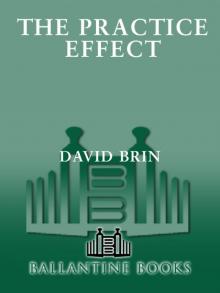 The Practice Effect
The Practice Effect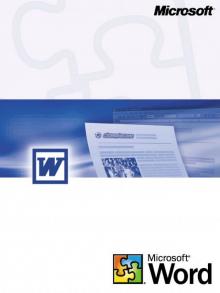 Infinity's Shore
Infinity's Shore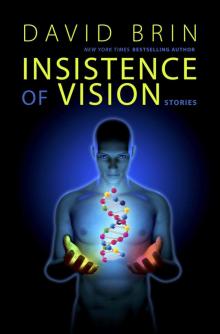 Insistence of Vision
Insistence of Vision Sundiver
Sundiver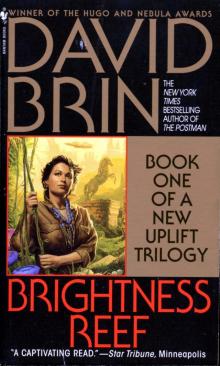 Brightness Reef
Brightness Reef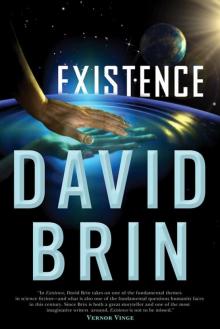 Existence
Existence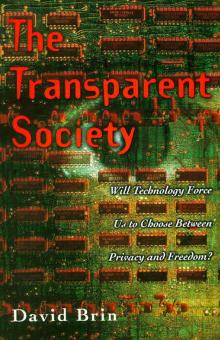 The Transparent Society
The Transparent Society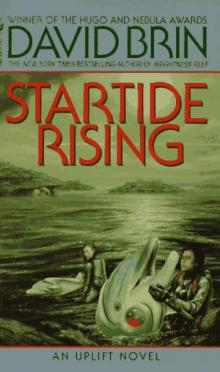 Startide Rising
Startide Rising The Postman
The Postman The Uplift War
The Uplift War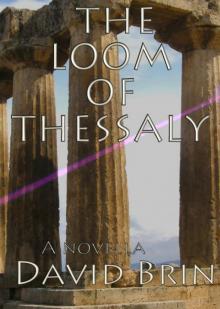 The Loom of Thessaly
The Loom of Thessaly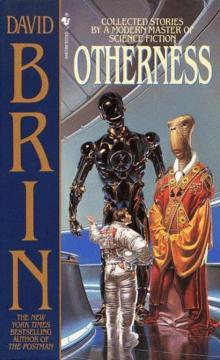 Otherness
Otherness Sundiver u-1
Sundiver u-1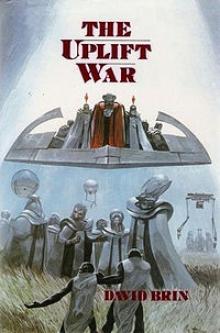 The Uplift War u-3
The Uplift War u-3 Infinity's Shore u-5
Infinity's Shore u-5 Brightness Reef u-4
Brightness Reef u-4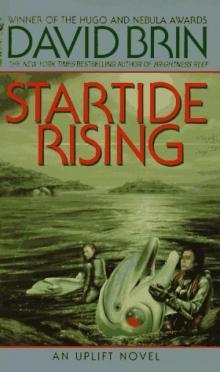 Uplift 2 - Startide Rising
Uplift 2 - Startide Rising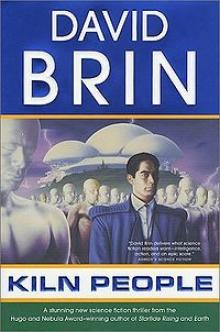 Kiln People
Kiln People Heaven's Reach u-6
Heaven's Reach u-6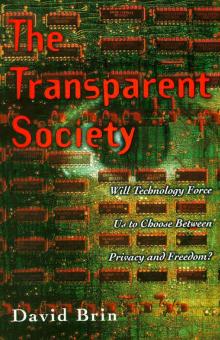 The Transparent Society: Will Technology Force Us to Choose Between Privacy and Freedom?
The Transparent Society: Will Technology Force Us to Choose Between Privacy and Freedom?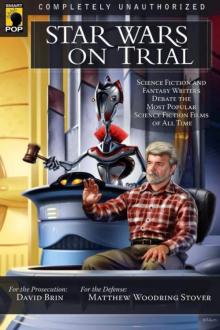 Star Wars on Trial
Star Wars on Trial Lungfish
Lungfish Tank Farm Dynamo
Tank Farm Dynamo Just a Hint
Just a Hint A Stage of Memory
A Stage of Memory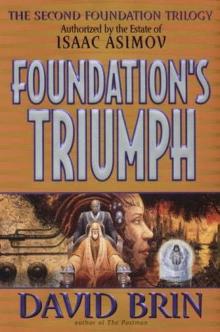 Foundation’s Triumph sf-3
Foundation’s Triumph sf-3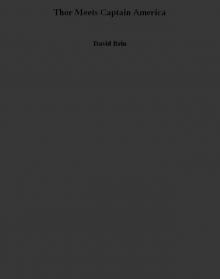 Thor Meets Captain America
Thor Meets Captain America Senses Three and Six
Senses Three and Six The River of Time
The River of Time Chasing Shadows: Visions of Our Coming Transparent World
Chasing Shadows: Visions of Our Coming Transparent World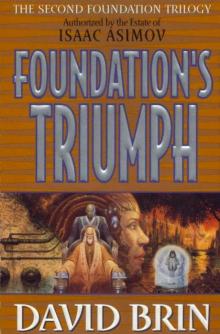 Foundation's Triumph
Foundation's Triumph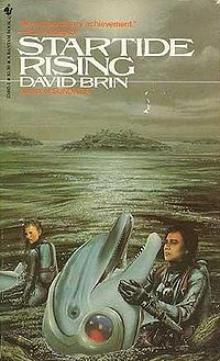 Startide Rising u-2
Startide Rising u-2 The Fourth Vocation of George Gustaf
The Fourth Vocation of George Gustaf The Heart of the Comet
The Heart of the Comet The Crystal Spheres
The Crystal Spheres